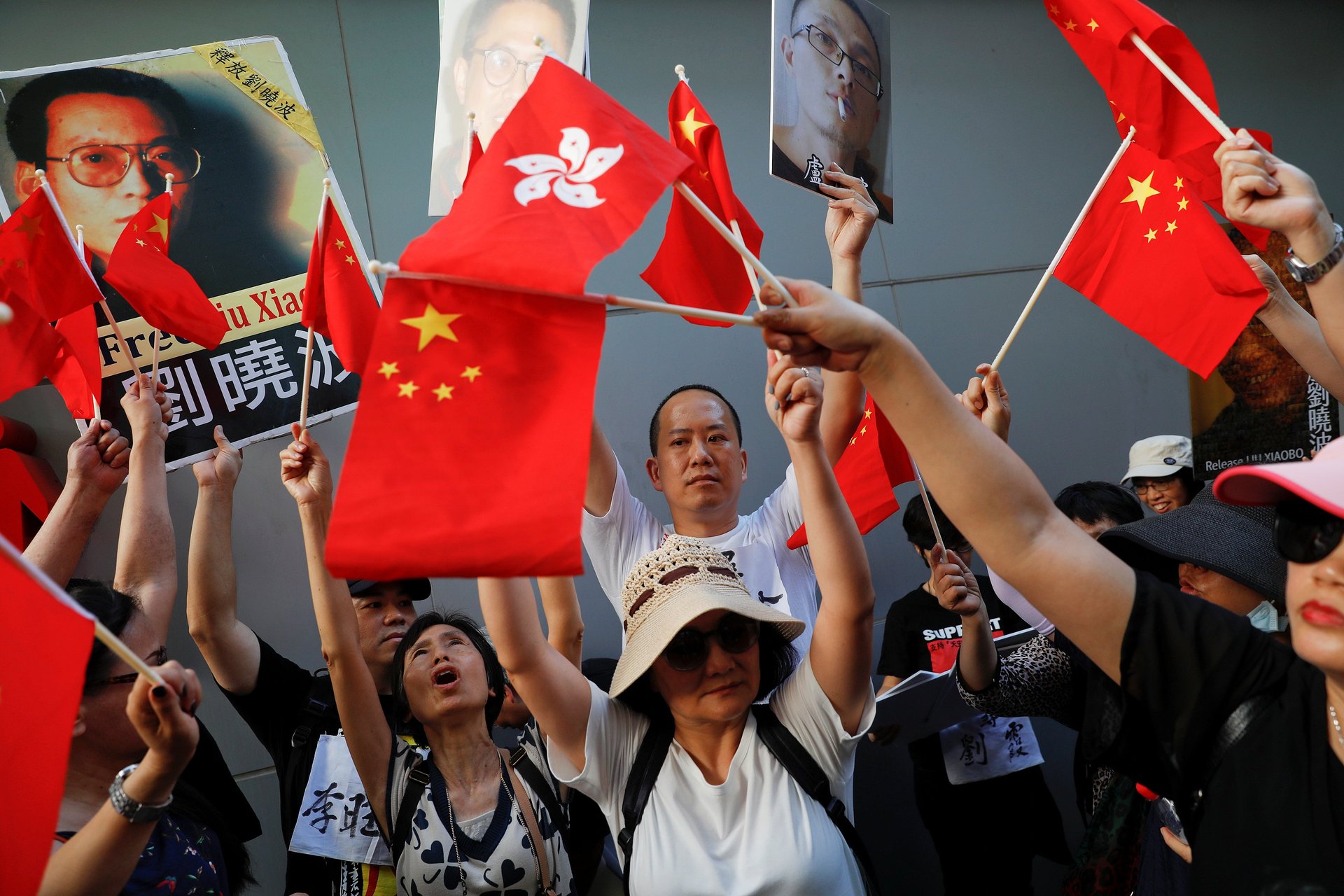“Rioters” or “fighters”? Hong Kong’s mainland Chinese are split by protests
As protests rage in Hong Kong over the controversial law that would allow criminals to be extradited to mainland China, many of the city’s mainland residents are wrestling with a complicated set of emotions.


As protests rage in Hong Kong over the controversial law that would allow criminals to be extradited to mainland China, many of the city’s mainland residents are wrestling with a complicated set of emotions.
Opinions are highly divided among the group as tensions escalated this week, resulting in violent scenes on Wednesday (June 12) as police fired rounds of rubber bullets and tear gas at protesters and labeled the protest a “riot.” That followed a largely peaceful march over the weekend that drew a million people to the city’s streets, calling the proposed law an “evil law” that would erode the freedoms that set Hong Kong apart from mainland China.
For the more than one million mainland Chinese living in the city, disagreements over Hong Kong highlight their peculiar position in society, one that is neither fully local nor foreign. Many find themselves caught between two different narratives—as many of their local friends or colleagues take part in the protests against the extradition law, the central government in Beijing is holding firm to its description of them as a “riot,” and has exhorted foreign governments to stay out of China’s domestic affairs.
Mainland Chinese in Hong Kong rarely openly participate in social movements out of fear of monitoring and repercussions by Chinese authorities. Many, however, also have a limited or distorted view of events in Hong Kong—and elsewhere—due to years under tight censorship back home, and online propaganda from state media.
China Daily, a state-owned English language newspaper, for example, alleged this week that more than 800,000 people had pledged support for the extradition law in a signature campaign online and at street stands in Hong Kong—without reporting that some one million people had marched in opposition to it on the weekend. Some users also said that they weren’t able to send or receive photos from Hong Kong’s protests on messaging app WeChat.
“Lots of mainland residents, due to fear of talking about taboo issues in the mainland like the protests in public with people surrounding them, have turned to online channels for getting the information. However, that is where the Chinese Communist Party has been actively deploying its misinformation tactics,” said Lokman Tsui, an assistant professor in journalism at the Chinese University of Hong Kong.
Relations between mainland Chinese and Hong Kongers have also become increasingly tense in recent years as many locals lament the economic and social impact of a huge influx of tourists and residents to the small city, further complicating mainlanders’ emotions toward Hong Kong. Some mainland residents, feeling excluded and isolated from the mainstream discourse, may as a result become more defensive of their country and the narratives presented by Beijing.
Still, some mainland Chinese in Hong Kong found ways of expressing their support for the anti-extradition-law protests. All of the people Quartz interviewed asked for anonymity for fear of reprisals from Chinese authorities.
“I feel such sympathy for those brave young people in Hong Kong. They’ve suffered for me, a coward who doesn’t dare to step out for fighting for those rights. I owe them,” a mainland Chinese man working in the financial industry in the city wrote on his personal page on WeChat.
A woman from mainland China in her late 20s who has lived in Hong Kong for eight years told Quartz, “I fully support the protests. The fundamental issue is that the Hong Kong government has ignored the opinions of its people for too long. I highly appreciate the citizens political attitude, perseverance and bravery.”
Under the “one country, two systems” framework under which Hong Kong has been governed since it was returned to Chinese rule in 1997, residents of the city enjoy a high degree of autonomy and freedoms that people north of the border are denied. Many mainland Chinese appreciate the privileges they are able to have in the city—such as a free press and unfettered internet—but others give such rights shorter shrift.
In one WeChat group containing over 300 mainland Chinese living in Hong Kong, one member said that “those rioting should all be jailed and given proper sentences,” and said that those who took part in the protests should not be allowed to “disrupt the order of the city.” When challenged by another member who asked him why he had chosen to stay in Hong Kong if not for the many more rights he could enjoy there compared to on the mainland, he responded, “I came here only for the good salary.” Several other members of the group followed suit by posting the same answer.